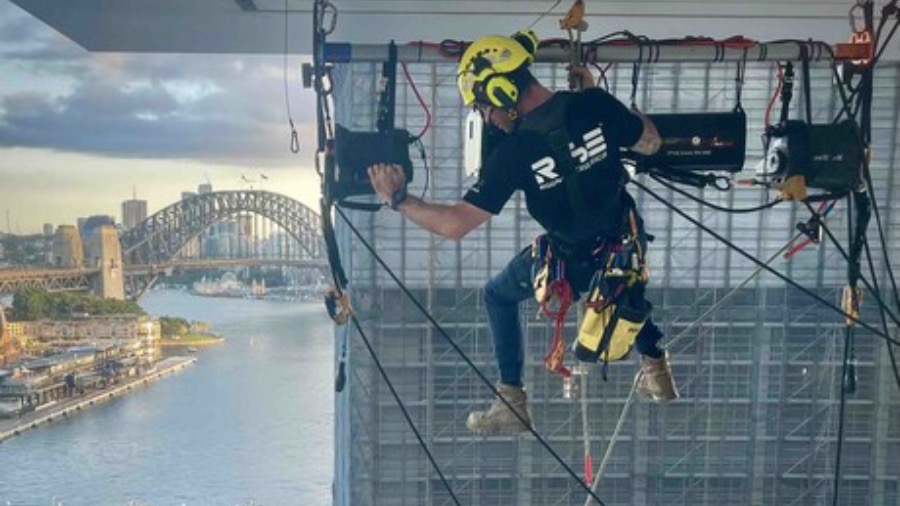
RISE Pacific is an expert company in rigging, access and rescue in the broadcast, aerial and stunt worlds across live entertainment venues. While looking to source accessories and parts for its existing fleet of Motorola digital radios, the company ultimately engaged intercom specialist D2N – Technology Solutions to assist with utilising newer technologies for its onsite communication requirements.
“Operating in complex vertical and confined-space environments means communications are absolutely critical to our team’s safety and ability to efficiently achieve a given scope of works,” noted RISE Pacific’s Design And Sales Manager, Dane Boulton. “What really interested us was the potential to deploy a solution that would allow constant duplex communication with all members of the work party.
“Not only does this allow our technicians to communicate even when both hands are busy … it also removes the risk of a team member being blocked from passing an urgent message when a radio channel is busy. This is something that poses a major risk when comms systems are being relied upon as a primary means of communication in safety-critical rope-access and confined-space operations.”
RISE Pacific required a comms system that was both durable and compatible with an AS-approved hearing protection/communications earmuff. It also had to be able to maintain interoperability with the company’s existing fleet of digital Motorola radios. To meet these requirements, D2N proposed a comprehensive Riedel Bolero solution that is known for its flexibility and durability.
“The standalone Riedel Bolero system with audio interface and radio PTT input provided exactly what we were hoping to achieve, by allowing us constant duplex communication between our operators wearing wired or wireless Bluetooth 3M Peltor communications/hearing protection headsets and helmet-attached earmuffs,” Boulton said.
“Not only did this provide our technicians hearing protection in noisy environments but also clear, articulate communications between them — regardless of whether they were one metre or hundreds of metres apart from each other. The beltpacks have proved incredibly durable in use, and the ability to interface with our existing fleet of Motorola MOTOTRBO radios allows us to easily scale the system up by providing radios to less critical members of the work party.
“With the Bolero system our technicians can quickly and easily connect their 3M Peltor headsets via Bluetooth and join the communications network onsite. We will often have a party-line just for users on Bolero that also includes our radio interface, a party-line that broadcasts to a speaker at our base station for communications with standby rescue operators and the client, and a party-line for external audio such as overload alarms from our Broadweigh load monitoring system or music for those really long days onsite. Another major plus is that we can easily get through a day or more’s work with the battery life of the Bolero.”
RISE Pacific’s system is packaged in a rolling rack case that includes the Bolero system, NSA audio interface, radio interface and an IP camera system for monitoring of confined spaces and worksites. For less complex jobs the company can easily package antennas and beltpacks in a small case for easier transportation to the site. Deployment is quick, with the antennas being connected back to the rack with a single Ethernet cable handling both data and PoE power for the antenna.
For Boulton, the benefits of the D2N comms solution are plentiful. He said, “When we pass our clients a headset they get crystal-clear, low-latency communications made completely frictionless by the fully duplex, always-on nature of the system. This coupled with good hearing protection and ambient noise reduction is an incredibly powerful tool even on the most complex, loud and communication-hampering sites.
“So far, we’ve utilised the system in complex confined spaces where our technicians have been separated vertically including in a 160-metre-deep ventilation and maintenance shaft which was a very harsh RF environment and on a working airfield where, even with an extremely high levels of ambient noise, a ground team could clearly communicate with riggers working nearly 25 metres off from the ground in large boom lifts. Completing jobs of this nature smoothly and efficiently with clear communication between the team would not have been possible without such an effective means of communication.”
